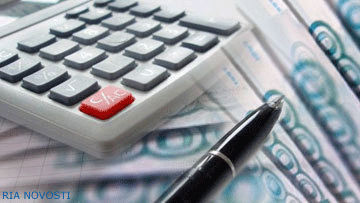Back to the 70s as stagnation beckons for Russia
 The jury is still out on how Russia is bouncing back from the crisis, but even optimists see large question marks hovering over the financial future.
The jury is still out on how Russia is bouncing back from the crisis, but even optimists see large question marks hovering over the financial future.
With industry stagnating and key indicators flatlining the overall picture looks gloomy, but analysts say it will take more than this to threaten the government's position even with parliamentary and presidential elections coming into view.
Vedomosti reported a drop in industrial output last month, falling 0.5 per cent and raising fears of a lack of underlying growth in Russia's economy.
Stagnation"Neither war nor peace. This is a horizontal trend," the Development Centre's Valery Mironov told Vedomosti, adding that it could continue for some time.
The number of sectors recording growth has almost halved from January to June from 117 to 66.
Meanwhile the economy will not achieve 5 per cent growth in the next five years during which time United Russia will tested at the polls twice.
But, as Leonid Brezhnev's long era of quiet 70s stagnation showed, it takes more than this to upset public opinion.
"People do not respond to reports of slow down in the economy," says Masha Lipman from the Carnegie Centre. "They react to their own wallet. The drive for preserving the status quo is more powerful."
People will put up with a surprising amount from the devil they know, she told The Moscow News. "People are willing to adjust to some lowering of living standards. Between now and the election I think the government will do everything possible to keep public sentiment from getting really sour... It may not have endless resources, but I am sure it will have resources for that."
Russian troika
The question is, can government resources hold? Industry was the first thing to jump out of the crisis and tow the economy along behind it, HSBC's Alexander Morozov told Vedomosti.
World prices for raw materials, capital inflows and the Central Bank policy to prevent a rapid appreciation of the rouble - this was the "Russian Troika" which carried the economy forward but now these drivers are more difficult to calculate. Morozov expects the next three years to see economic growth stabilise at 2-4 per cent.
At Deutsche Bank, analyst Yaroslav Lissovolik also sees the economy growing at a level below its potential. He warns that the principle risk is the stagnation of the real sector and the absence of credit growth.
Poor industrial output can hit banks and a lack of credit slows production. Stagnation adversely affects consumption growth and consequently the confidence of companies who would like to invest. And it hurts the government's plans that investment should be the main engine of the economy.
Stable oil, stable economy
Investment bank UBS is more confident. "Given the structural shift in the fiscal policy and the structurally lower inflation rates, private sector savings and domestic leverage are likely to expand rapidly and drive the economy forward, in our view," it said in a note. "While there is a cyclical element in the recent increase in the private savings rate, we believe it is also structural. We raise our growth forecast for 2011 to 6% (4.5% previously) on essentially stable oil prices."
Oil is the big risk factor here, equally that the rouble could strengthen "to levels that the economy could find difficult to absorb," but they do not think it will threaten the currency's competitiveness. "Fiscal policy," they said, would be key to preventing the rouble strengthening.

